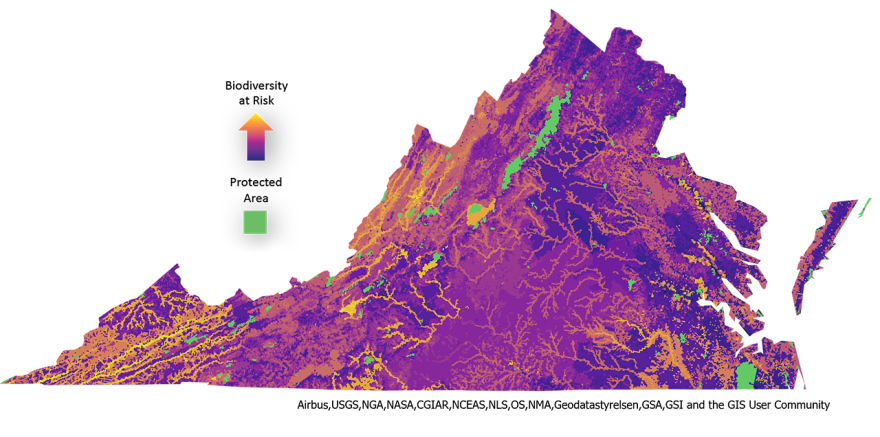If we want to protect, restore and manage the places where rare plants and animals are found, we have to put them on the map, and that’s just what biologist Anne Chazal and her team at Virginia Natural Heritage did.
“We have scientists that go out into the forests and the streams and the caves of Virginia, and we look for targeted, imperiled animals and plants,” she says.
And since plants and animals pay no attention to state boundaries, they worked with a national group to compare the maps for 2,200 living things.
“If you think about layering them on top of each other, you’ll have areas that have multiple models hitting at the same place. You could consider that a hot spot of biodiversity,” Chazal explains.
Here in Virginia, there are more than 200 threatened or endangered plants and animals, and Chazal says our waterways are essential habitat for many of them.
“Our rivers, particularly those in southwest Virginia that flow to the Tennessee drainage, are just marvels of biodiversity. We really are a hot spot, not only within the lower 48 but also in the world.”

She hopes these maps will help planners to prevent development and provide protection from storms and pollution in places where living things face the possibility of extinction.
“You have habitat fragmentation that happens when you clear land and make way for urban and suburban life. We’re seeing increased floods or increase storm frequency and water quality issues – anti-depressants and things like that in the water that may be having adverse effects on our aquatic fauna and wildlife.”
Previous biodiversity maps typically showed only small areas in a single state. Now Chazal says, we have comprehensive maps for all of the lower 48 states. That resource could allow this country to protect more critical habitat for wildlife.

